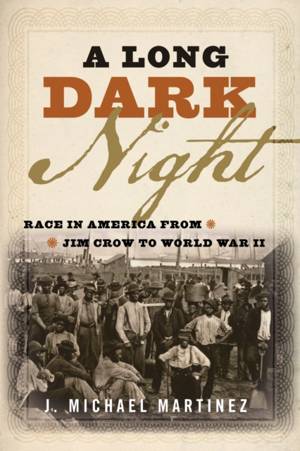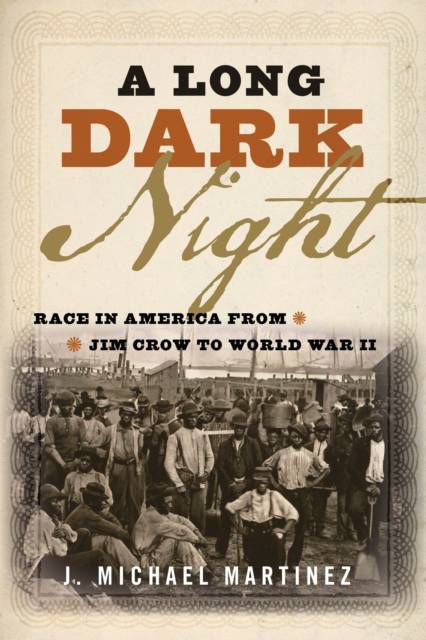
Vous voulez être sûr que vos cadeaux seront sous le sapin de Noël à temps? Nos magasins vous accueillent à bras ouverts. La plupart de nos magasins sont ouverts également les dimanches, vous pouvez vérifier les heures d'ouvertures sur notre site.
- Retrait gratuit dans votre magasin Club
- 7.000.000 titres dans notre catalogue
- Payer en toute sécurité
- Toujours un magasin près de chez vous
Vous voulez être sûr que vos cadeaux seront sous le sapin de Noël à temps? Nos magasins vous accueillent à bras ouverts. La plupart de nos magasins sont ouverts également les dimanches, vous pouvez vérifier les heures d'ouvertures sur notre site.
- Retrait gratuit dans votre magasin Club
- 7.000.0000 titres dans notre catalogue
- Payer en toute sécurité
- Toujours un magasin près de chez vous
A Long Dark Night
Race in America from Jim Crow to World War II
J Michael Martinez
Livre relié | Anglais
77,95 €
+ 155 points
Description
For a brief time following the end of the U.S. Civil War, American political leaders had an opportunity--slim, to be sure, but not beyond the realm of possibility--to remake society so that black Americans and other persons of color could enjoy equal opportunity in civil and political life. It was not to be. With each passing year after the war--and especially after Reconstruction ended during the 1870s--American society witnessed the evolution of a new white republic as national leaders abandoned the promise of Reconstruction and justified their racial biases based on political, economic, social, and religious values that supplanted the old North-South/slavery-abolitionist schism of the antebellum era. A Long Dark Night provides a sweeping history of this too often overlooked period of African American history that followed the collapse of Reconstruction--from the beginnings of legal segregation through the end of World War II. Michael J. Martinez argues that the 1880s ushered in the dark night of the American Negro--a night so dark and so long that the better part of a century would elapse before sunlight broke through. Combining both a "top down" perspective on crucial political issues and public policy decisions as well as a "bottom up" discussion of the lives of black and white Americans between the 1880s and the 1940s, A Long Dark Night will be of interest to all readers seeking to better understand this crucial era that continues to resonate throughout American life today.
Spécifications
Parties prenantes
- Auteur(s) :
- Editeur:
Contenu
- Nombre de pages :
- 436
- Langue:
- Anglais
Caractéristiques
- EAN:
- 9781442259942
- Date de parution :
- 14-04-16
- Format:
- Livre relié
- Format numérique:
- Genaaid
- Dimensions :
- 160 mm x 234 mm
- Poids :
- 816 g







